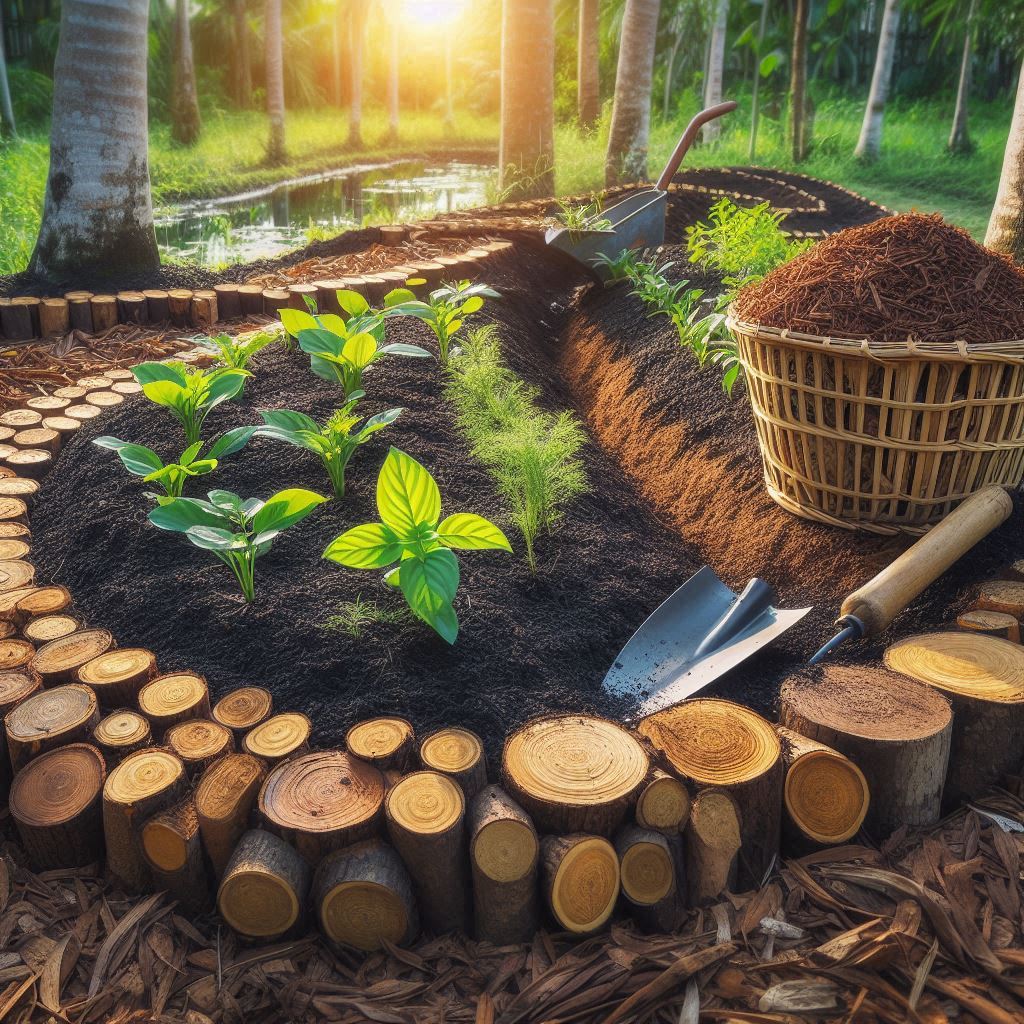Choose the Right Organic Mulch for Your Garden
In order to naturally maintain healthy soil, mulching is a necessary practice, but choosing the correct kind of mulch can have a significant impact. As they break down, organic mulches like compost, wood chips, straw, and shredded leaves give nutrients to the soil. Every kind of mulch has advantages. Straw, for instance, works wonders for vegetable gardens because it keeps the soil moist and inhibits the growth of weeds. Wood chips provide durable protection and work well around trees and shrubs. Shredded leaves quickly decompose and enrich your soil with beneficial organic matter. You can make sure that your plants receive the support they require to flourish by selecting the appropriate mulch.
Improve Moisture Retention and Soil Temperature
Mulching has several advantages, one of which is its capacity to hold onto soil moisture. As a protective barrier, a thick layer of mulch lowers evaporation and improves soil water retention. In hotter climates or during dry seasons, when water conservation is essential, this is especially advantageous. Mulch not only retains moisture but also controls soil temperature by keeping the ground warmer in the winter and colder in the summer. Plant roots become healthier and stronger as a result of this stability, which enhances overall growth. You can create a stable environment in your garden where plants can thrive by mulching it.
Suppress Weeds and Improve Soil Health
Mulching is a safe, non-toxic alternative to harsh chemicals for controlling weed growth. Weed seeds cannot germinate when sunlight is blocked from reaching the soil by a thick layer of organic mulch. The mulch improves the soil’s structure, aeration, and nutrient content as it decomposes and enriches it with organic matter. Beneficial bacteria and earthworms are supported by this process, and they help maintain healthy, productive soil. Frequent mulching improves the long-term health of the soil in your garden and helps keep weeds under control.
Reapply Mulch to Keep Your Garden Healthy
Organic mulch will eventually decompose and break down, adding nutrients to the soil but also thinning it out. Mulch needs to be reapplied and monitored frequently to continue to provide its advantages. Depending on the type of mulch and its rate of decomposition, reapplying it once or twice a year should be sufficient. Avoid packing fresh mulch up against tree trunks or plant stems as this might cause rot or disease. Maintaining a regular layer of mulch will help your soil stay weed-free, healthy, and moist, which will lead to a flourishing garden every year.
